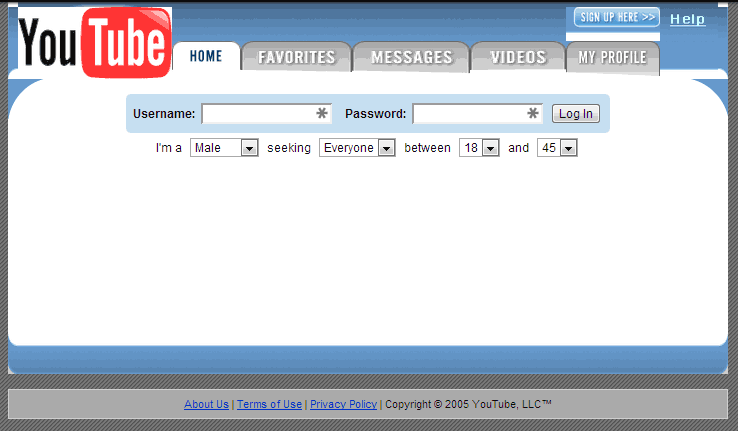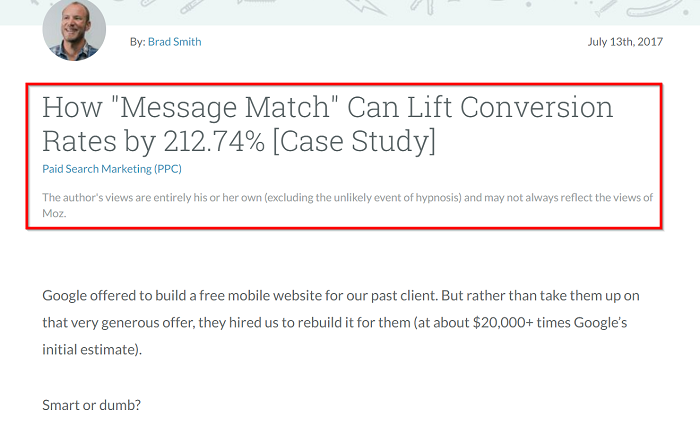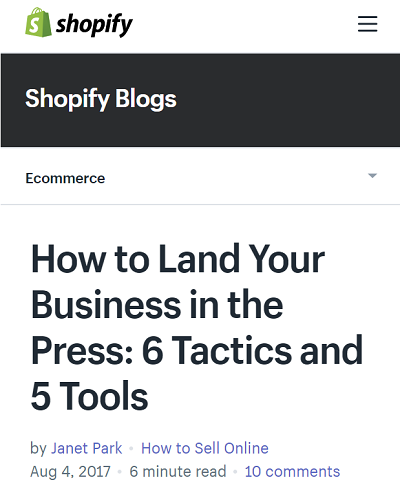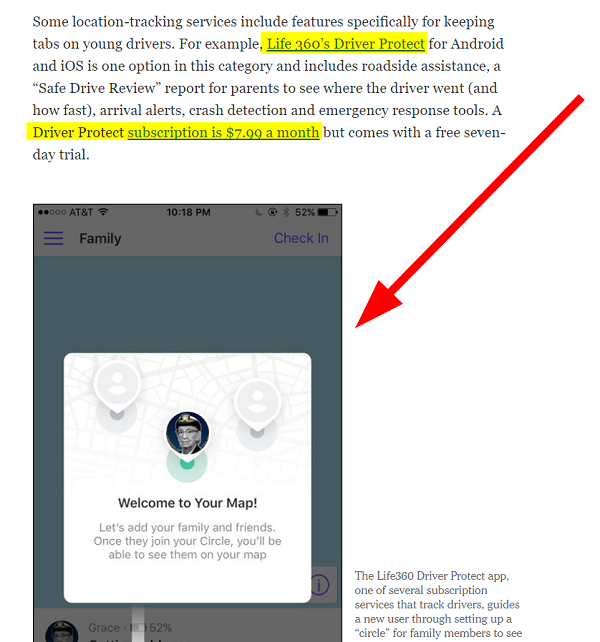When I got my first check of $154.60 from ClickBank, I knew I deserved it and maybe more.
Before then, I’ve read uncountable articles and watched lots of videos on affiliate marketing. None of them produced a paycheck. It was my hard work and grind that did.
I have earned a lot from affiliate marketing since then.
Forget about luck.
Forget about shortcuts. There is nothing like a shortcut when selling online.
You can sell lots of your products and services, but it’s only when you take massive action. Action produces results online.
What are the things you have to do to sell online?
This article shows and tells you the right things you MUST do to get results.
The tips you’ll soon discover will help you grow your online business.
Learn how to write well
While growing up, most of us are told about the importance of hard work, honesty, and other things, but rarely communication.
As we grew older, we began to understand the importance of communication.
It’s not enough to come up with big ideas and create the best products. You also need the ability to convey your messages and thoughts clearly.
There are three main ways to reach people online:
- Text-based content, e.g., emails, infographics, e-books, SlideShares.
- Audio-based content, e.g., podcasting, audio interviews, webinars.
- Video-based content, e.g., YouTube, Facebook Live, Instagram videos, video interviews.
You can do without audio and video-based content as long as you can write great text content.
Some marketers are shy of cameras. Some don’t like the sound of their voice. Yet, they are successful.
It’s because they can write well.
For example, Stuart Walker, the creator of NicheHacks is one of the successful, yet shy marketers I know.
Stuart doesn’t create videos. He doesn’t use his real image as the face of his brand. But he writes well. And that is all that matters.
Anyone can become a great writer with practice and consistency.
Writing is putting down the voices inside your head.
Learn from writing masters like Ernest Hemingway, Stephen King, William Faulkner, and William Zinsser.
The book, On Writing Well by William Zinsser taught me many things about writing.
Read like writers.
Writers read everything. Fiction. Nonfiction. Business. Romance. Sports. Marketing. Politics. Stocks.
You are what you read.
When the late Portuguese Nobel prize winner, Jose Saramago was asked about his daily writing routine, his answer was, “I write two pages, and then I read and read and read.”
It is after you’ve read a lot you can have words and thoughts inside your head.
It is then you can begin to transform those thoughts into text content for prospects.
The content you create online will help you build an audience that’s interested in you and your products and services.
A digital entrepreneur or marketer who doesn’t know how to write well has an obstacle to overcome.
Create a product or service people love
If you sell something people want and love, it is likely that you’ll be successful on the web.
It doesn’t matter who you are. It doesn’t matter where you live. It doesn’t matter whether or not you have investors.
For example, Jeff Bezos started Amazon in his garage. He saw that people wanted to buy things online. Bezos began with books and slowly introduced other products in his online store.
Today, Amazon is “the everything store.”
You might be struggling to sell online because people don’t want your product or service. If that is the case, you shouldn’t stay married to a single product idea. Pivot.
The word “Pivot” became popular in Silicon Valley through the efforts of Eric Ries, author of “The Lean Startup.”
Pivot means to change your customer segment, or your channel, or revenue model or pricing, or activities, or costs, or partners, or your customer acquisition strategy, or even your product.
For example, Slack began its life as a video-game company before realizing that there’s a business opportunity in the chat app the company developed to communicate internally.
Today, Slack is worth at least $5 billion.
YouTube started as a video dating site. It pivoted into a video-sharing platform.

Tobias Lütke, Daniel Weinand, and Scott Lake got the idea for Shopify while trying to open an online store for snowboarding equipment in 2004.
They were disappointed with the existing e-commerce solutions on the market and decided to build their own. They pivoted.
Today, Shopify generates $150 million in revenue per year and powers 500,000 stores. Not bad for a pivot.
There are lots of consumers’ needs yet to be met. If a product idea isn’t selling, pivot. Find better ideas, or try selling to another customer segment.
Continue testing until you find that product idea that sells.
Don’t stay married to your product ideas.
I love the idea of selling before building.
Try to confirm if there’s a need for a product by asking people to pay for it before building it.
That way, you can gauge demand for a product idea before committing your money and time to it.
Trying to sell a product people don’t need is a waste of your precious time and resources.
Instead, sell a product that people need. You’ll find it much easier to succeed that way.
Work hard and network
Work HARD at promoting a product that people love.
If you don’t work harder and smarter than the next guy, you may soon be out of business.
Selling online is more complex than offline because they are an array of technologies and opportunities available at your disposal on the web. You’re required to understand many of these technologies before you can take full advantage of them.
There are Google My Business, Yelp, Google Analytics, Google AdWords, WordPress.org, Boomerang, MailChimp, Skype, Slack, PayPal, Evernote, FreshBooks, ZenDesk, SurveyMonkey, Amazon Web Services, Facebook, Instagram, Medium, LinkedIn, etc.
Competition is fierce online. You need a combination of lots of tools to gain a competitive advantage.
Learning these tools and understanding their various uses and benefits is, in itself work.
How do you learn all these marketing tools?
You learn them by visiting blogs dedicated to the marketing industry.
I read marketing blogs like Moz, Search Engine Land, Hubspot, Social Media Examiner, Content Marketing Institute, and ConversionXL on a regular basis. That’s work.
Brad Smith, the founder of Codeless, a B2B content creation company, recently published a case study on Moz titled “How ‘Message Match’ Can Lift Conversion Rates by 212.74%.”

If you’re a business owner who sells online, you should be asking yourself questions like “what is message match?” and “how can it help increase your conversion rates?”
Andrew Dennis, a Senior Content Marketing Specialist at Siege Media, wrote a case study on Search Engine Land titled “How to rank #1 on YouTube search in 30 days.”
If you want to acquire more customers from YouTube, the 2nd largest search engine in the world, this article shows you what to do.
You’ll gain a thorough knowledge of digital marketing when you read these marketing blogs on a regular basis.
And don’t just read. You should also surround yourself with talented digital marketers.
Attend marketing industry meetups and conferences in your area to develop relationships with other digital marketers or business owners like yourself.
Hard work combined with the knowledge you gain from reading marketing blogs and the relationships you build with talented marketers, will help you make lots of sales.
Educate your customers
No matter who your customers are, they want information that helps them learn, grow, and improve in some ways.
For example, Earth Class Mail helps business digitize their mail. The company educates prospects through its blog.
When you educate potential customers, they’ll see your business as an established brand they can trust. They’ll also become more engaged with your brand.
This is called content marketing.
You provide content that educates people. Through that content, they become aware of your business and what it does.
For example, Invision is a prototyping tool designers use to design products before transferring them to programmers who turn them into real products.
The company has a blog that educates its users, who are designers.

Invision creates content on topics their prospects want to read.
Create content that addresses the prospects’ pains. Publish a case study that helps them learn from your success and failures.
Produce content that teaches prospects practical skills.
Shopify publishes how-to guides and tutorials on its blog.

“You can have everything in life you want, if you will just help enough other people get what they want.” – Zig Ziglar
Produce awesome content on a regular basis
The truth is that content marketing is nothing new.
In fact, there’s too much content on the web right now than people can consume. Content supply has exceeded demand in most industries online.
Mark Schaefer calls it “Content Shock.”
If most of your competitors are already producing lots of content online, it’s possible that your industry may be having content shock.
But content shock is not an excuse.
If your industry is experiencing content shock, it means you have to raise the bar of quality content in your industry.
You’ll have to beat competitors by creating what digital marketers call “10x content.”
To create a 10x content means to produce remarkable content prospects haven’t seen before. Something so unique and beautiful that your customers can’t wait to see and read.
How do you create 10x content?
By going deeper into your topic, like I am doing right now. Then deliver the content in an attractive way that’s enjoyable for your audience.
There’s another way to create a 10x content:
You produce content that isn’t easy to replicate by competitors.
For example, Alex Turnbull, the co-founder of Groove interviewed Rand Fishkin, the co-founder of Moz.
Quality interviews like this with a famous person is rare.
Bloomberg published an article titled “This Is How Fast America Changes Its Mind.” It cites lots of credible stats and contains interactive graphics.
These are 10x content. They are not easy to replicate.
When you publish 10x content on a regular basis, your business will gain greater exposure through word-of-mouth. People will talk about your 10x content on social media. Other content creators will link to it.
Scan competitors’ content and find ideas you can improve massively.
Earn people’s trust
Trust is the most scarce and valuable resource online.
The barrier to entry online is almost zero. Anybody from any part of the world can create a website, product, and publish content on the web.
First, show your face. People should know the person behind the business.
People will relate to you better when they can see your face.
Proofread your content to ensure that you don’t embarrass yourself. The presence of grammatical errors on your site will make people feel uneasy, and they may question your knowledge as a result.
Websites that are filled with grammatical errors are hard to trust.
If a business can’t produce an article that is error-free, their site isn’t the place you want to spend your money.
You can also earn trust by appearing in the press.
If the press is writing good things about a particular business, the company must be delivering a valuable service to its customers.
When a reputable news source like the New York Times writes good things about your business, it extends its trust which it has built over the past 160 years.
For example, here’s a mobile application that was recently mentioned in the New York Times.

Another way to earn trust is to engage more with people on social media.
Make your business organically sticky
To be organically sticky is to dominate a particular marketing channel.
For example, James Altucher and David S. Rose are organically sticky on Quora. They’ve both conquered the Q & A platform.
James Altucher has close to 200k followers on Quora. Every question he answers gets thousands of views. It’s hard to visit Quora and not hear and see the name “James Altucher.”
Hubspot has conquered the Google search engine. Their pages rank for many top keywords in the marketing industry.
They produce lots of blog posts every month and optimize them for search engines. That is why Hubspot is organically sticky in search engines for keywords in the marketing industry.
Gary Vaynerchuk is organically sticky on every social media platform.
Facebook. Instagram. LinkedIn. Twitter. Snapchat. Medium. YouTube. He is everywhere with millions of followers.
Choose a platform and make it your home. Build a name for yourself on the platform.
“You can only be sticky if you are consistent.”
When you are popular on a platform, selling to anyone becomes easy.
Optimize every aspect of your marketing
If you’re not optimizing every aspect of your digital marketing campaign, you’re most likely leaving a lot of money on the table.
Whatever you do to market your business, you must track, measure, and improve it.
Optimize your landing pages (where you collect prospects’ names and emails), value proposition, content marketing campaign, homepage, marketing emails, PPC, Facebook ads, etc.
The web gives business owners the freedom and tools to track, measure, and improve their sales activities.
Optimize your marketing to make it work harder for you.
A/B testing is a common and effective conversion optimization strategy.
According to research from Hubspot, A/B testing of landing pages can generate up to 30-40% more leads for B2B sites, and 20-25% more leads for e-commerce sites.
Use the data you get from your current marketing activities to improve future activities.
When you use the tips in this article, you’ll sell lots of your products and services without relying on luck.
What other tips do you know that help you sell online?
Tell me in the comments.
